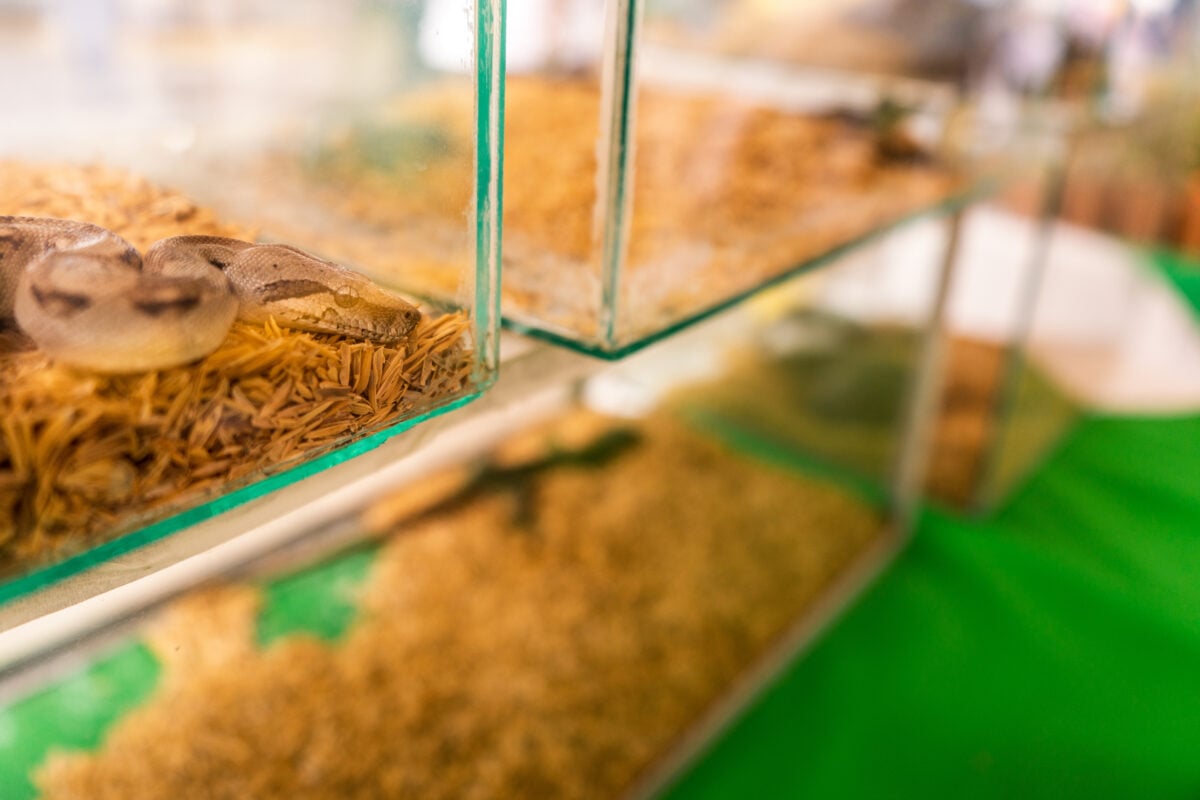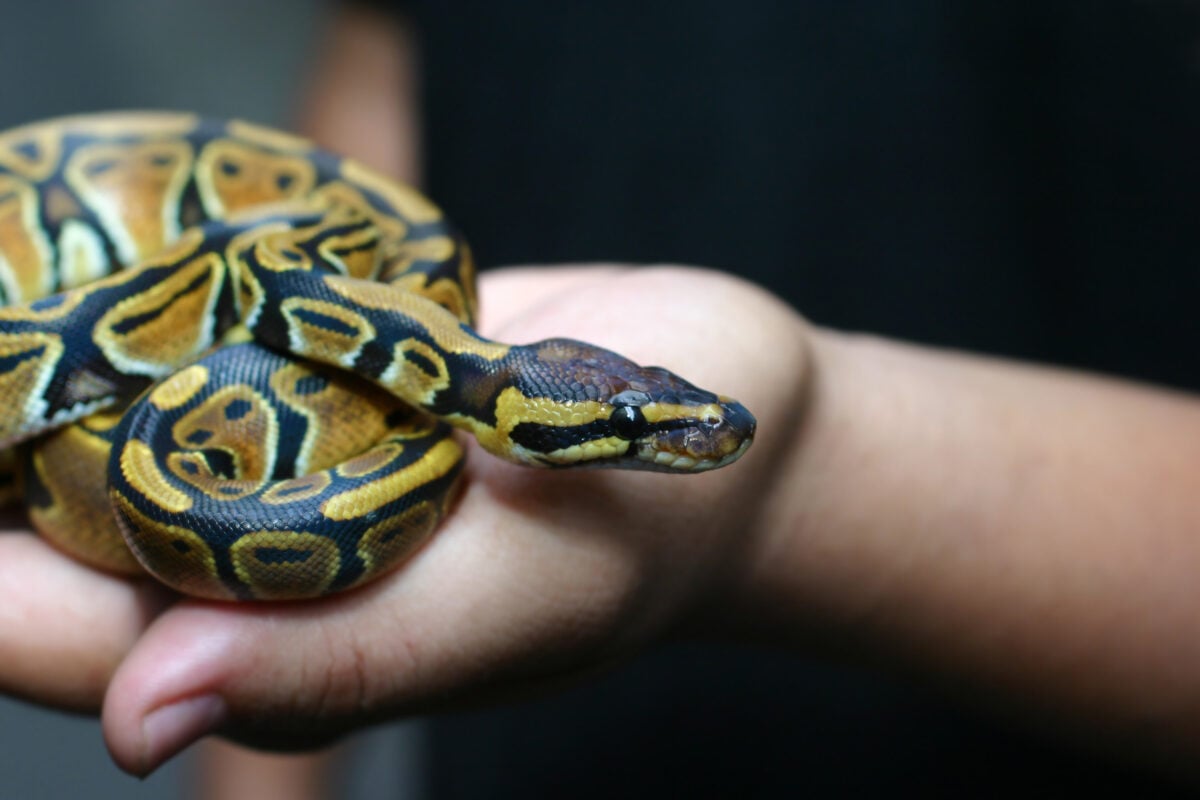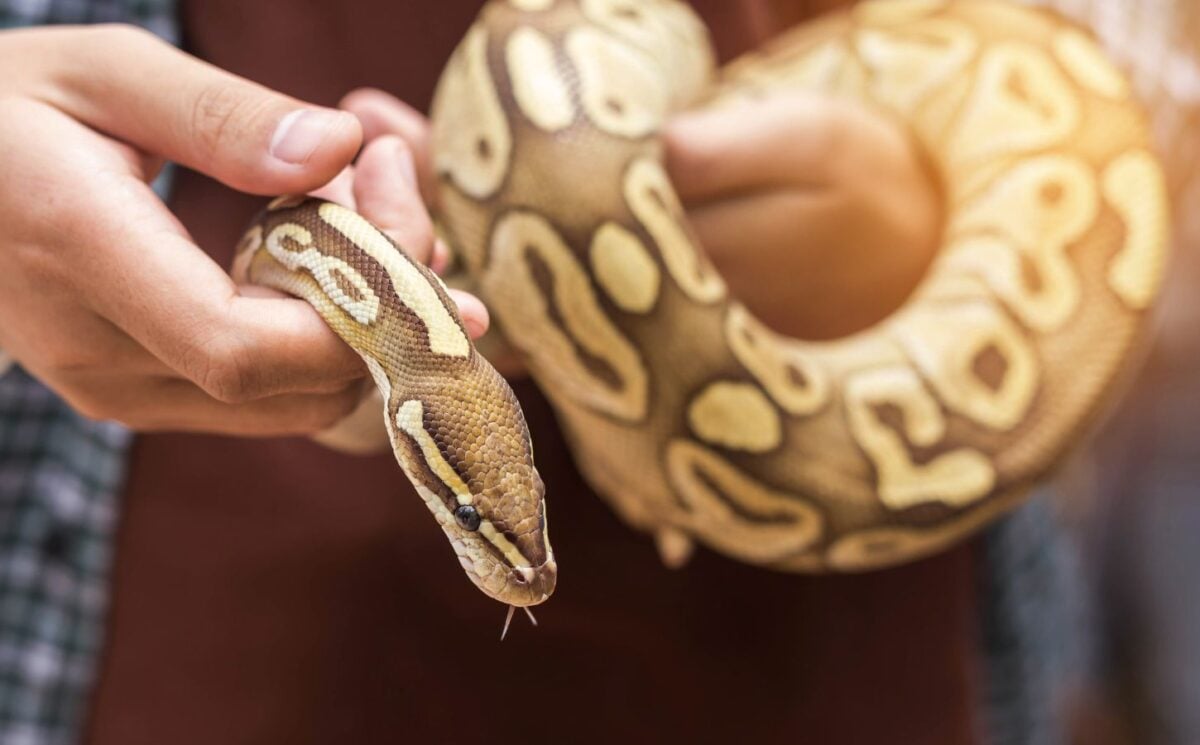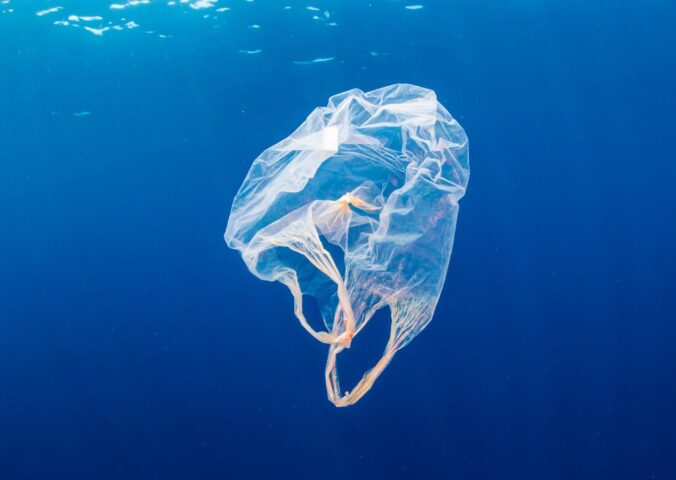A number of animal organizations are warning the UK government that it could face legal action over the welfare standards of “pet” snakes kept in England.
In a letter sent to the Department for Environment, Food, and Rural Affairs (Defra), signatories called on the government to increase enclosure sizes for snakes. Currently, snakes are the only animal in the country who are not legally required to stretch while kept captive. This goes against a huge body of scientific evidence that these conditions significantly impact their physical and psychological well-being.
Edie Bowles from law firm Advocates for Animals wrote the letter, which was sent on behalf of PETA, Born Free, Animal Protection Agency, Freedom for Animals, and World Animal Protection.
“Failing to provide a snake with an enclosure that provides them the ability to fully stretch in all dimensions could constitute a breach under the Animal Welfare Act 2006,” Bowles tells Plant Based News (PBN). “Defra appears to be increasingly blatant in its preference to favour the pet industry and disregards any scientific evidence that counters those interests.”
But how has this been allowed to happen? And Why isn’t Defra doing anything about it? Here’s everything you need to know about the situation facing snakes in England, the government’s apparent disregard for science, and the reasons why snakes should never be kept as “pets”.
‘Pet’ snakes in the England

There are around 400,000 snakes being kept as “pets” in the UK. Many of these snakes are kept in glass enclosures that don’t allow them to fully stretch their bodies. Experts have long argued that snakes need to stretch out just as much as any other animal, and that their conditions have a significant impact on their welfare. Currently, Defra guidelines state that cages two thirds of the length of their body is an adequate length for the case.
Dr Clifford Warwick, a consultant biologist and medical scientist, is one of the scientific advisors who has told Defra that snakes must be able to stretch. He has written 100 scientific books and articles on snakes.
“There is very little scientific evidence that dogs need to be able to stretch, because it’s obvious,” he tells PBN. “The same for cats, the same for birds. It’s implicit, and it’s common sense, and it’s right. With snakes we have a whole raft of papers, dozens, for peer reviewed scientific reports published in high quality journals that shows snakes must be able to stretch.”
According to Dr Warwick, snakes in these conditions are susceptible to conditions like muscle cramping, arthritis, digestive disorders, and psychological stress. Research has found that around 22 physical, and 20 psychological, conditions are caused by the cages.
“No other species, no other animals, have that much scientific evidence that they need to stretch,” says Dr Warwick. “And Defra has not only ignored that for five years, but it has left in place the provision that causes all that harm.”
Defra ignores advice

According to Dr Warwick, Defra had initially planned to make it a requirement that snakes must be able to stretch. After a letter from the pet industry, however, the department is said to have changed its guidelines.
Following pressure from PETA, Defra subsequently commissioned a review of its guidance. Dr Warwick was one of the scientists who took part in the consultation. The pet industry was also allowed in. Despite the pet industry’s presence, the findings of the report concluded that snakes must be able to stretch. Defra has yet to act on the report findings, however, and has been accused of ignoring scientific advice and acting in favor of the pet industry.
“Defra increasingly appears to demonstrate a preference for evidence provided by the pet industry, while overlooking or dismissing evidence from independent bodies that counter industry interests,” the letter from Advocates for Animals states.
PBN contacted Defra for comment. A spokesperson said: “We are carefully considering the recommendations in the Animal Welfare Committee’s Opinion paper on the housing of snakes.
“The wide diversity of snakes in the pet trade is associated with a range of natural behaviours and therefore welfare requirements. This creates a complex picture when defining snake selling requirements. We are considering our next steps.”
What impact would increasing space have?
While England has not updated its guidance, neighboring Wales does permit snakes to be able to stretch their bodies. According to Dr Warwick, this hasn’t had a huge impact on the pet trade.
“The Welsh government has stated that compliance has been good, pet shops have actually accepted this. Larger tanks, and smaller animals to go in them. Not a problem,” he says. “There have been few complaints, and a lot of the bigger producers of snakes do actually use conditions that would comply with this.”
Should snakes be kept as ‘pets’ at all?

While it’s undeniable that an increase in enclosure size is essential to improve their wellbeing in the short term, this does not mean that “pet” snakes would have anything remotely resembling high welfare in larger cages. Dr Warwick, alongside many other experts and animal groups, does not believe that snakes should be kept as companion animals at all.
“They’re simply not adapted to captivity,” he says. “They are wild animals and they have wild animal needs. They’re incarcerated. They’re prisoners. They’re in many cases taken straight from the wild and then thrust through the horrendous system that is the pet trade.”
PETA, which is calling for the government to increase cage size, does not see this proposed legislation as an end goal. In the long-term, the organization wants to see an end to wild animals kept as pets.
“In even the best cases – in which people have some understanding of these animals and their needs – a domestic environment can never meet their most basic needs or provide any semblance of a real or pleasant life,” Elisa Allen, vice president of programmes, tells PBN. ”A ban that prevents people from keeping wild animals in a domestic environment, where they don’t belong or thrive, is long overdue. In the meantime, the least we can do for snakes is make their miserable lives in captivity slightly less so by ensuring, at a minimum, they can stretch to their full body length in a sufficiently large enclosure.”
As well as the huge impact being kept in their permanent enclosures has on snakes, they are also subjected to brutal conditions prior to being sold. Many are kept in small tupperware-style boxes while being transported to the pet shop, and they can also be kept in a box at the back of the shop for up to three months after arriving. “No animals should be in substandard conditions for more than 24 hours, that I think is a long time, but done in the spirit of trying to be as pragmatic as possible,” says Warwick.
‘Escape artists’
In the summer of 2023, it was reported that snakes across the country had been escaping their enclosures during the hot weather. At the time, the RSPCA issued a warning that the heat was making them eager to “escape a lot more”.
Like they do with most animals, humans have shown time and time again that they appear to underestimate snakes’ sentience and abilities. Snakes want to escape because of the huge psychological and physical impact their cages have on them, and they are successful because they’re intelligent.
“Snakes are famous escapologists, they have many ways of getting out,” says Warwick. “It’s not just a case of pushing on a lid until it opens, they will actually try and work it out… They want out of that entire life. They want to get back to the life that they should be living.”
If you want to join the campaign urging the government to increase the cage size for “pet” snakes in England, find out how to send Defra a message here.






